Proposed accessible tourism requirements for event centers. Case study: of the Havana convention center-Cuba
Propuesta de requisitos de turismo accesible para centros de eventos. Caso de estudio: palacio de convenciones de la Habana-Cuba
Main Article Content
Abstract
Accessible tourism is currently presented as a necessity, providing a inclusive experience for all people. This study aimed to propose requirements for accessible tourism at Palacio de las Convenciones de La Habana events center. To achieve this, theoretical and empirical research methods were used. A bibliographic review was carried out to establish the theoretical and methodological foundations of this study, the level of accessibility of the center was characterized through interviews with managers and people with special needs, a survey of workers and observation of the physical places. Data processing involved the calculation of absolute and relative frequencies, discourse analysis and triangulation of methods. Based on the information recovered, a proposal of requirements was prepared that was structured into general and specific, with 11 areas of intervention, according to ISO 21902 standard. This research made it possible to verify that even though the center has vast experience and specialization in the holding of events and efforts have been made for adaptations, physical and social barriers persist that limit their potential for accessible tourism, affecting the parameters such as information, training, service infrastructure, resources for the event, tourism and accessibility standards, especially for people with hearing difficulties or low vision. The proposal of general requirements offers recommendations applicable to any event venue and the specific ones that are particular to the case study.
Downloads
Article Details
References (SEE)
Darcy, S., McKercher, B. y Schweinsberg, S. (2020), From tourism and disability to accessible tourism: a perspective article, Tourism Review, 75(1), 140-144. https://doi.org/10.1108/TR-07-2019-0323
Dashper, K. y Finkel, R. (2020) Accessibility, diversity, and inclusion in the UK meetings industry, Journal of Convention y Event Tourism, 21(4), 283-307, https://doi.org/10.1080/15470148.2020.1814472
Eslava, R., Montilla, R., Guerrero, E., Gómez, C., y Gómez, E. (2023). Social Responsibility: A bibliometric analysis of research state and its trend. Data and Metadata, 2(117). https://doi.org/10.56294/dm2024117
González, D., Garzón, D. y Sánchez, V. (2023). Cierre de las empresas del sector turismo en el municipio de Leticia: una caracterización de los factores implicados. Región Científica, 2(1), 202342. https://doi.org/10.58763/rc202342
Hernández, F., Hernández, Y. y Rodríguez, M. (2021). Hacia un turismo inclusivo en los hoteles comercializados por Ecotur en La Habana y Varadero. Tendencias, 22(2), 76- 106. https://doi.org/10.22267/rtend.212202.169
Kasimati, E. y Ioakeimidis, P. (2019). Accessible tourism in Greece: What is the current status? Journal of Ekonomi, 1(1), 33-42. https://dergipark.org.tr/en/pub/ekonomi/issue/45934/576142
López Celis, D. M., Peñalosa, M. E., Larios Gómez, E., & Fischer de La Vega, L. (2022). La lealtad de marca y el consumidor colombiano en época de covid-19. FACE: Revista De La Facultad De Ciencias Económicas Y Empresariales, 22(2), 4–13. https://doi.org/10.24054/face.v22i2.1326
Martínez, M. (2018). Turismo accesible para todos. Análisis del grado de accesibilidad universal del Museo de Historia Natural de Rouen (Francia), Revista Turydes: Turismo y Desarrollo, 25. https://www.eumed.net/rev/turydes/25/accesibilidad-museo.html
ONU-Turismo. (2014). Organización Mundial del Turismo y la Fundación ACS. Alianzas público-privadas y buenas prácticas. Manual de turismo accesible para todos.
Organización Mundial de Salud. (2023). Informe Mundial sobre Discapacidad-OMS, Banco Mundial.
Ostelea (2021). Influencia del turismo MICE y las características que lo definen. https://www.ostelea.com/actualidad/blog-turismo/organizacion-de-eventos/influencia-del-turismo-mice-y-las-caracteristicas-que-lo-definen
Parra Acosta, Y. K., Almanza, C. A., & Astudillo Valverde, D. F. (2021). Análisis de estrategia en redes sociales para el sector de los restaurantes colombianos en tiempos de crisis por la pandemia covid-19. FACE: Revista De La Facultad De Ciencias Económicas Y Empresariales, 21(2), 84–98. https://doi.org/10.24054/face.v21i2.1106
Priego Reyes, R., Martínez Prats, G., & Rodríguez Ocaña, M. A. (2021). La publicidad digital y el desafío de la saturación publicitaria para el empresario. FACE: Revista De La Facultad De Ciencias Económicas Y Empresariales, 21(2), 14–21. https://doi.org/10.24054/face.v21i2.1102
Rodríguez, M. (2011). Diagnóstico de turismo accesible para personas con capacidades motoras restringidas en la ciudad de Lujan. [Tesis de grado]. Universidad Abierta Interamericana.
Rubio-Escuderos, L., García-Andreu, H, Michopoulou, E. y Buhalis, D. (2021) Perspectives on experiences of tourists with disabilities: implications for their daily lives and for the tourist industry, Tourism Recreation Research, 2. https://doi.org/10.1080/02508281.2021.1981071
Safaeva, S., y Adilova, D. (2020). Mice Tourism: Opportunities, Priorities, Problems, Prospects. The American Journal of Applied Sciences, 2(11), 116–121. https://doi.org/10.37547/tajas/Volume02Issue11-21
Sanabria, M. (2022). Construir nuevos espacios sostenibles respetando la diversidad cultural desde el nivel local. Región Científica, 1(1), 20222. https://doi.org/10.58763/rc20222
Staropolsky, A. (2011). La operación y funcionamiento de los centros de convenciones en México y la estimación de su significancia económica. Centro de estudios superiores en turismo. www.cestur.sectur.gob.mx
Tápanes, E., Bosch, O., Sánchez, Y., Marqués, M., y Santos, O. (2023). Sistema de indicadores para el control de la sostenibilidad de los centros históricos asociada al transporte. Región Científica, 2(1), 202352. https://doi.org/10.58763/rc202352
Tite, G., Carrillo, D. y Ochoa, M. (2021). Turismo accesible: estudio bibliométrico. Turismo y Sociedad, XXVIII, 115-132. https://doi. org/10.18601/01207555.n28.06
Tuazon, M. (2020). Mice tourism during covid-19 and future directions for the new normal. Asia Pacific International Events Management Journal, 1(2), 11-17. https://ejournal-medan.uph.edu/index.php/apiemj/article/view/397








